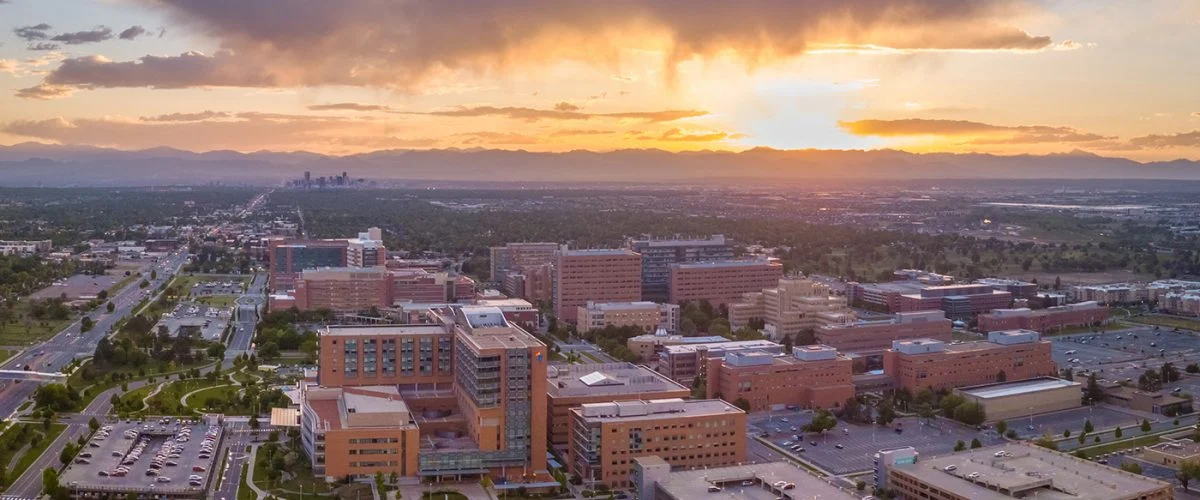Neuro-Infectious Diseases & Autoimmune Neurology Fellowship
Program Information:
Program Directors: Daniel Pastula, MD, MHS; Amanda Piquet, MD; and Lakshmi Chauhan, MD

Our one-of-a-kind Neuro-Infectious Diseases/Autoimmune Neurology Fellowship is a joint program between the Department of Neurology and the Division of Infectious Diseases. It is open to both neurologists and infectious disease physicians who wish to learn more about
neuro-infectious and neuro-inflammatory conditions. It is a one-year clinical fellowship at the University of Colorado Hospital from July 1 to June 30. We plan to have one to two fellows per year.
Our fellows will be trained in the diagnosis and management of various neuro-infectious diseases (e.g., bacterial, viral, fungal, and parasitic meningoencephalitis and myelitis) among both immunocompetent and immunocompromised (e.g., HIV/AIDS, transplant
patients) patients. They will work closely with our neuro-ID and general infectious disease faculty, and occasionally attend microbiology rounds.
Our fellows will also be trained in the diagnosis and management of various neuro-inflammatory and autoimmune neurologic diseases (e.g., autoimmune encephalitis, neurosarcoidosis, lupus, MOGAD, multiple sclerosis) and become very familiar with immunosuppressive
and immunomodulatory medications. They will work closely with our autoimmune neurology and MS/neuroinflammatory faculty. They will also learn about various laboratory diagnostic techniques and may be able to visit some laboratories with which we collaborate.
Finally, our fellows will be introduced to various public health process as the local city/county, state (CDPHE), and federal (CDC) levels.
After graduation, our fellows would be well-trained for a variety of academic or private practice neurology or infectious disease positions.
Our fellowship is particularly unique in that the University of Colorado Hospital serves as a main academic referral hospital for the entire Great Plains and Rocky Mountain Regions of the United States and is the closest hospital to the third busiest
international airport in the world (Denver International Airport). We see a lot of common and rare conditions from all around the globe!
Denver, Colorado, and the surrounding areas offers many outdoor and cultural activities. Whether you like skiing, hiking, eating amazing food, drinking craft beer, visiting cool museums, panning for gold and silver, watching bison and moose (and now wolves) from afar, cheering on the Colorado Rockies/Broncos/Avalanche/Nuggets/Rapids/Mammoth teams, seeing a concert at Red Rocks, or watching the cliff divers at Casa Bonita, there is plenty to see and do while training here!

Eligibility Criteria:
- All applicants for this non-ACGME fellowship program must be eligible for full, unrestricted, and independent University of Colorado Hospital credentialing at the instructor fellow level.
- Possession of a current, valid, unrestricted Colorado medical license prior to the start of the fellowship.
- Completion of an ACGME (or Canadian equivalent) accredited 1) residency in neurology or 2) fellowship in infectious diseases.
- Board-certified or board-eligible in neurology or infectious diseases.
Application Information:
Please submit your complete application on or before January 31, one and a half years prior to the desired fellowship start date (e.g., by January 31, 2026, for a July 2027 start date). We plan to review complete applications beginning in December and conduct virtual interviews on a rolling basis throughout January and February. We plan to have final decisions by March. Please get your applications in early if you can!
Fellowship Application Status
2026-2027 – Fellowship positions already filled
2027-2028 – Fellowship position open for applications Fall/Winter 2025
Application Materials:
- Intent to Apply Form
- CV
- Personal statement on how this fellowship will fit in with your career goals
- 3 letters of recommendation, preferably from faculty who can comment on
your skills and interest - USMLE/COMLEX scores (steps 1, 2, and 3)
- Letter of good standing which includes status in current program and dates
of training (residency graduation certificate is also acceptable if training is complete) - ECFMG certificate (if applicable)
| Daniel Smith, MD: | Ohio Health |
| Murtaza Khan, MD: | University of Kansas |
| Christine Gill, MD: | University of Iowa |
| Ronak Kapadia, MD: | University of Calgary |
| Kyle Coleman, MD, MS: | Indiana University |
| Elizabeth Matthews, MD: | University of Colorado |
| Kelli Money, MD, PhD: | UCHealth Memorial Hospital |
| Rumyar Ardakani, MD: | USC/LA General Medical Center |
| Paul Crane, MD: | University of Utah |
| Barrie Schmitt, MD: | University of Colorado |
| Mallory Lowe, MD: | University of Colorado |
| Maria Gallanis, MD: | Current NID-AN Fellow |